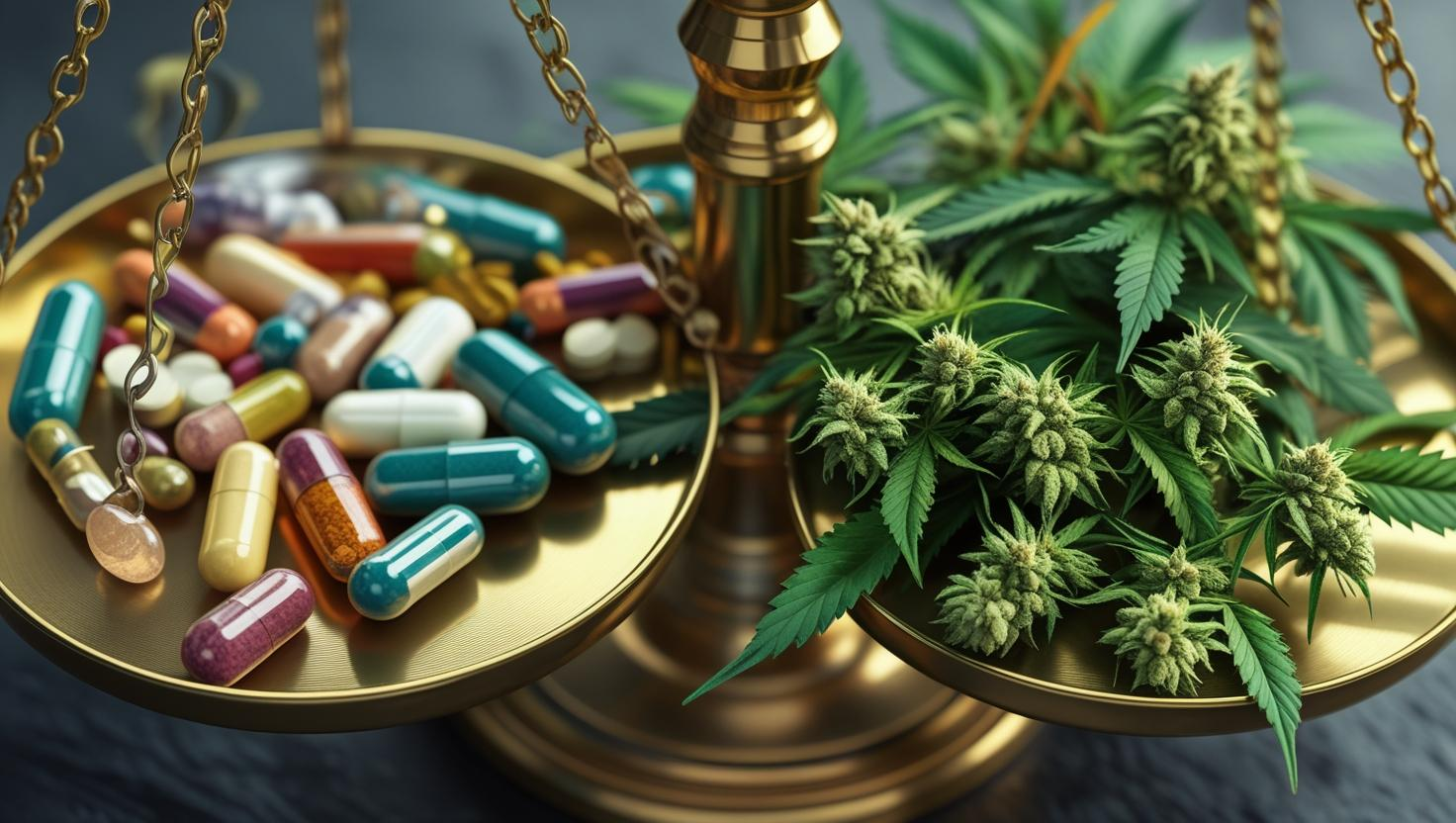London, United Kingdom — A growing body of evidence is pointing toward the therapeutic potential of medical cannabis in the treatment of substance use disorders (SUD), particularly among individuals struggling with opioid dependence. A new observational study published in the peer-reviewed journal European Addiction Research has found that sustained use of cannabis-based medicinal products (CBMPs) was associated with improved sleep quality, reduced anxiety levels, and decreased opioid consumption among patients enrolled in the UK Medical Cannabis Registry.
Study Overview and Methodology
The study involved British patients who had been formally diagnosed with various forms of SUD, with opioid use disorder being the most common diagnosis—accounting for 53% of participants. All patients had previously failed to respond adequately to conventional treatments, making them eligible for CBMP prescriptions under UK guidelines. In the United Kingdom, specialist clinicians are permitted to prescribe CBMPs when traditional pharmacological or behavioral therapies have proven insufficient.
Participants’ progress was tracked at one month, three months, and six months after initiating CBMP therapy. Researchers monitored multiple patient-reported outcome measures (PROMs), including anxiety levels, sleep quality, and health-related quality of life (HRQoL). They also tracked changes in oral morphine equivalent (OME) doses to assess any reductions in opioid use.
Key Findings
The results were notable:
- Anxiety — Patients consistently reported lower anxiety scores at each follow-up interval, suggesting both rapid and sustained mental health benefits.
- Sleep Quality — Across the board, participants experienced marked improvements in sleep duration and restfulness, a critical factor in recovery from addiction where insomnia is a common relapse trigger.
- Opioid Use — Median daily OME doses declined significantly from baseline to six months, indicating that cannabis may help patients reduce reliance on prescription opioids.
- Safety — Importantly, no severe or life-threatening adverse events were reported, underscoring the favorable safety profile of CBMPs in this patient population.
The researchers concluded that CBMPs may be particularly useful in maintenance therapy for opiate-dependent individuals with co-occurring anxiety and sleep disturbances. They also noted that cannabis may support opioid tapering protocols by alleviating withdrawal-related symptoms such as restlessness, insomnia, and heightened anxiety.
Broader Clinical Context
These findings add weight to a trend already observed in patient-reported surveys and smaller clinical trials. Previous research has indicated that a significant percentage of patients undergoing opioid maintenance therapy (e.g., methadone or buprenorphine) independently use cannabis to ease withdrawal symptoms, reduce cravings, and improve overall quality of life.
The UK Medical Cannabis Registry has also documented positive outcomes for CBMP use across a wide range of other health conditions, including:
- Treatment-resistant epilepsy
- Cancer-related pain
- Fibromyalgia and other chronic pain syndromes
- Inflammatory bowel disease
- Depression and anxiety disorders
- Migraine and cluster headaches
- Multiple sclerosis
- Osteoarthritis and inflammatory arthritis
These broad applications highlight cannabis’ multi-mechanistic therapeutic potential, particularly through its interaction with the endocannabinoid system—a complex network of receptors and signaling molecules involved in regulating pain perception, mood, and sleep-wake cycles.
Limitations and the Need for Longitudinal Research
While the study’s six-month follow-up provides meaningful insight, the authors caution that longer-term data are needed. It remains unknown whether the benefits observed will remain stable, continue to improve, or diminish over time. Controlled clinical trials with randomized designs will be necessary to determine causality and to identify optimal dosing strategies, cannabinoid formulations, and treatment durations for SUD patients.
Public Health and Policy Implications
The implications of this research are far-reaching. Opioid use disorder continues to be one of the leading drivers of preventable death worldwide, and the search for non-lethal, non-addictive adjunctive treatments is urgent. If CBMPs can reliably reduce opioid dependence while improving mental health and sleep, they could become a valuable tool in harm reduction strategies.
In the UK, where access to medical cannabis is still relatively limited compared to North America, these findings may support broader prescribing guidelines and encourage policymakers to fund larger-scale research. Internationally, the study adds to a growing evidence base that could help reshape treatment protocols for addiction and chronic pain.
Conclusion
The sustained use of cannabis-based medicinal products appears to offer meaningful therapeutic benefits for patients with substance use disorders, particularly those dependent on opioids. By improving sleep, reducing anxiety, and lowering opioid consumption—all without serious adverse events—CBMPs may serve as a promising adjunct to traditional addiction therapies.
As the study’s authors note, the next step is to gather long-term, high-quality data to fully understand the role of medical cannabis in recovery and relapse prevention. Until then, these findings offer cautious but encouraging support for integrating cannabis into the broader toolkit for managing SUD and improving patient outcomes.
Cannabis is not just a passing trend—it’s a time-honored botanical with a rich history of healing. For too long, its medicinal potential has been clouded by stigma and legal barriers, leaving many without access to natural relief. Now that medical cannabis is legal in Georgia, residents have a safe, plant-based alternative worth considering. If you believe it could support your health, apply today for your 5-year medical cannabis card.
Click Below to Apply for a Georgia Medical Cannabis Card

STILL HAVE QUESTIONS? CLICK BELOW FOR FAQ


